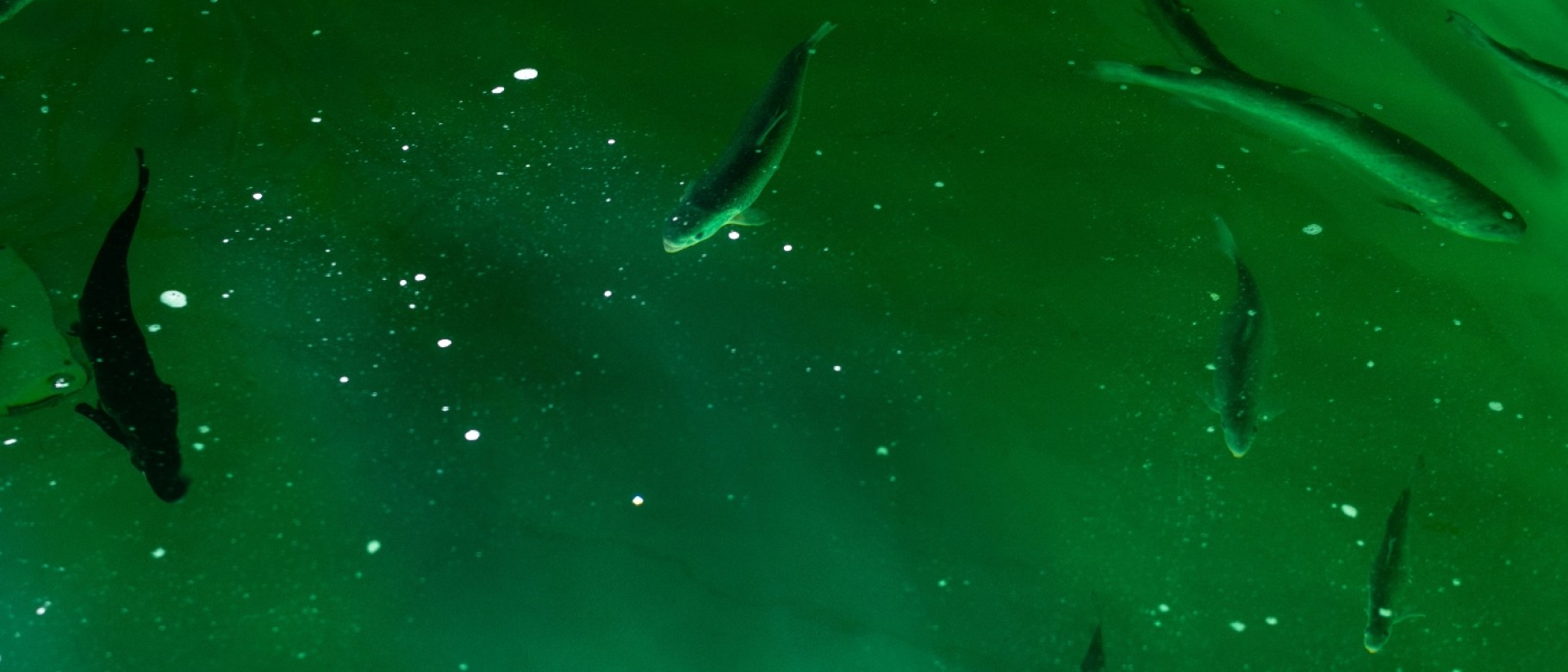School of Marine and Environmental Programs eyes opportunities in Maine’s growing aquaculture industry

In the coastal Maine community of Belfast, plans are underway for a new way of providing food to feed the planet. Norway-based Nordic Aquafarms intends to construct a $500 million, state-of-the-art, sustainable land-based salmon farm.
“This technology is going to allow us to feed a lot more people, provide a lot more protein, and do it in a sustainable way,” commented Charles Tilburg, Ph.D., academic director of the School of Marine and Environmental Programs.
Peter DelGreco assisted Nordic Aquafarms in finding that sweet spot along the coast that provides access to both fresh and ocean water. DelGreco is the president and CEO of Maine and Company, a non-profit organization that helps businesses locate or expand in Maine.
“They have put together such a world caliber team of scientists, business leaders, and investors,” he stated. “With Nordic Aquafarms coming here, we are at the center of a brand-new growing industry that frankly has the potential to revolutionize how we feed people.”
In a recent op-ed published in the Bangor Daily News, UNE President James Herbert wrote, “At full capacity, the facility will produce roughly 33,000 metric tons of Atlantic salmon per year — equivalent to 7% of the U.S. salmon market.”
Herbert sees strong industry partnerships as a real benefit for the University’s students and researchers. That is why he encouraged UNE’s marine scientists to testify as intervenors on behalf of Nordic Aquafarms during the company’s permitting process.
“We were asked about the scientific validity of what they plan to do,” explained Tilburg. “They needed expertise in water quality and recirculating agriculture systems. That is something that the University of New England could provide.”
Barry Costa-Pierce, Ph.D., Henry L. & Grace Doherty Professor of Ocean Food Systems and graduate program coordinator of UNE's Ocean Food Systems Master’s Program, has been a research scientist in aquaculture for more than four decades, developing education and extension aquaculture programs throughout the world.
“Being a scientific advocate for aquaculture development is completely different than being an advocate for Nordic Aquafarms,” Costa-Pierce stated. “When we began as intervenors, we were obviously in support of the project overall, but there was scientific testimony we provided on the different value of recirculating aquaculture systems and land-based aquaculture in general, here and globally, that was neutral.”
There’s no question the project could be beneficial to the University. Students in the Marine Science program are learning about recirculating systems, water quality, and water chemistry.
“As academic director of the school of Marine and Environmental Programs, I am excited that this could provide internships and job opportunities for our students,” Tilburg said.
As UNE explores partnerships with Nordic Aquafarms, DelGreco says any student lucky enough to work, study, or do research alongside Nordic Aquafarms scientists will be learning from the best the world has to offer.
“Who doesn't want to go work for Elon Musk?” DelGreco asked. “That's who these people are--they are industry leaders. They have five of these projects going on around the world and having this kind of opportunity in your backyard is really something.”
Charles Tilburg sees opportunities for UNE faculty and researchers as well.
“We have several experts in aquaculture who would be able to work with Nordic Aquafarms to advance their research interests,” he stated. “By partnering with them, we would be able to investigate questions that we could not do without the help of a partner like them.”
Peter DelGreco sees many opportunities for UNE and the state of Maine in general.
“A $500 million project is a huge investment,” he explained. “I can't think of many other private sector investments that have reached that scale in Maine. This has the potential to be completely transformational in such a positive way.”